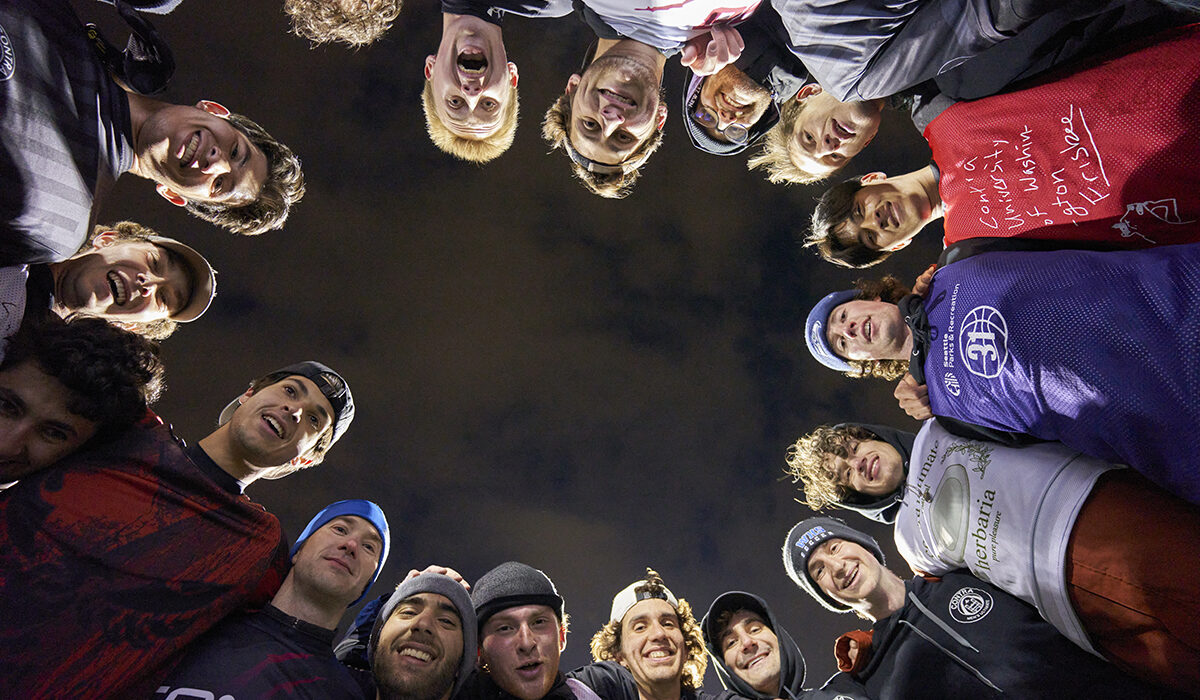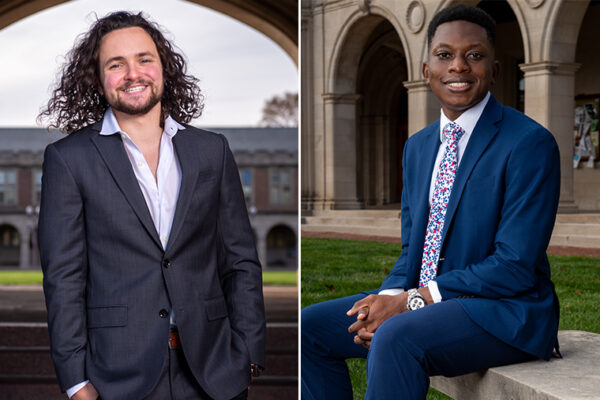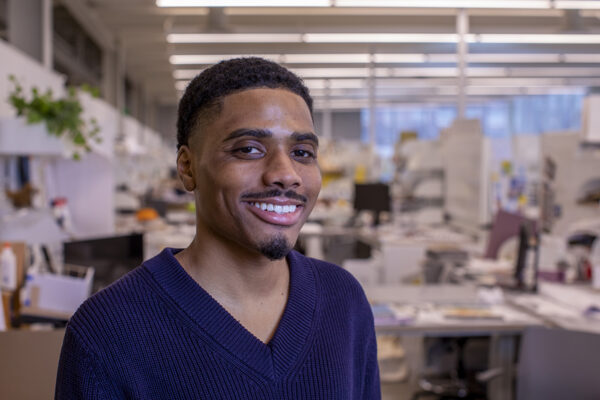It’s 8 p.m. on a chilly Thursday and the members of Contra, the men’s Ultimate Frisbee team, are singing “Walking on Sunshine” as they warm up for practice. For the next two hours, the players will sprint, leap, block and dive as they pass the Frisbee up and down the field at Washington University’s south campus. Even injured players such as sophomore Elie Weitzman are there to watch, learn and participate in whatever way they can.
“I broke my collarbone three weeks ago, and these have been the worst three weeks of college for me because I can’t be on the field,” Weitzman said.
Ultimate Frisbee may be a club sport, but Contra’s 32 players work as hard as varsity athletes, practicing up to eight hours a week and hitting the gym for semi-weekly workouts. The training has paid off. Last year, the team made it to the USA Ultimate Division I College Championships for the first time in the program’s 35-year history.
Beyond the many hours practicing, players spend many more bonding. The team meets for Friday dinners, hangs out between classes at the Danforth University Center and organizes weekly “doughnut dates,” where randomly paired players to get to know each other better. In addition, the team spends hours together on the road and in motels. This extreme togetherness has created a special and supportive family, Weitzman said.
“I’m on K.A.R.L. (an on-campus improv team), and the team shows up to every single one of our shows, and it always makes my day,” Weitzman said. “We are there for each other on and off the field.”
Jesse Strod, one of the team’s three coaches, said players stay connected long after graduation. Alumni come back every year for an alumni scrimmage and some continue to be roommates. Strod himself is a Contra alum.
“When my last season was ending, I thought ‘I guess I can’t play, but I’m not just going to not be around’, and so I asked the team if they would have me on as an assistant,” recalled Strod, who graduated in 2021 and now serves as a development associate at the north St. Louis County nonprofit A Red Circle. “It was very instinctual, it is very much something that I care about and I want to keep doing.”
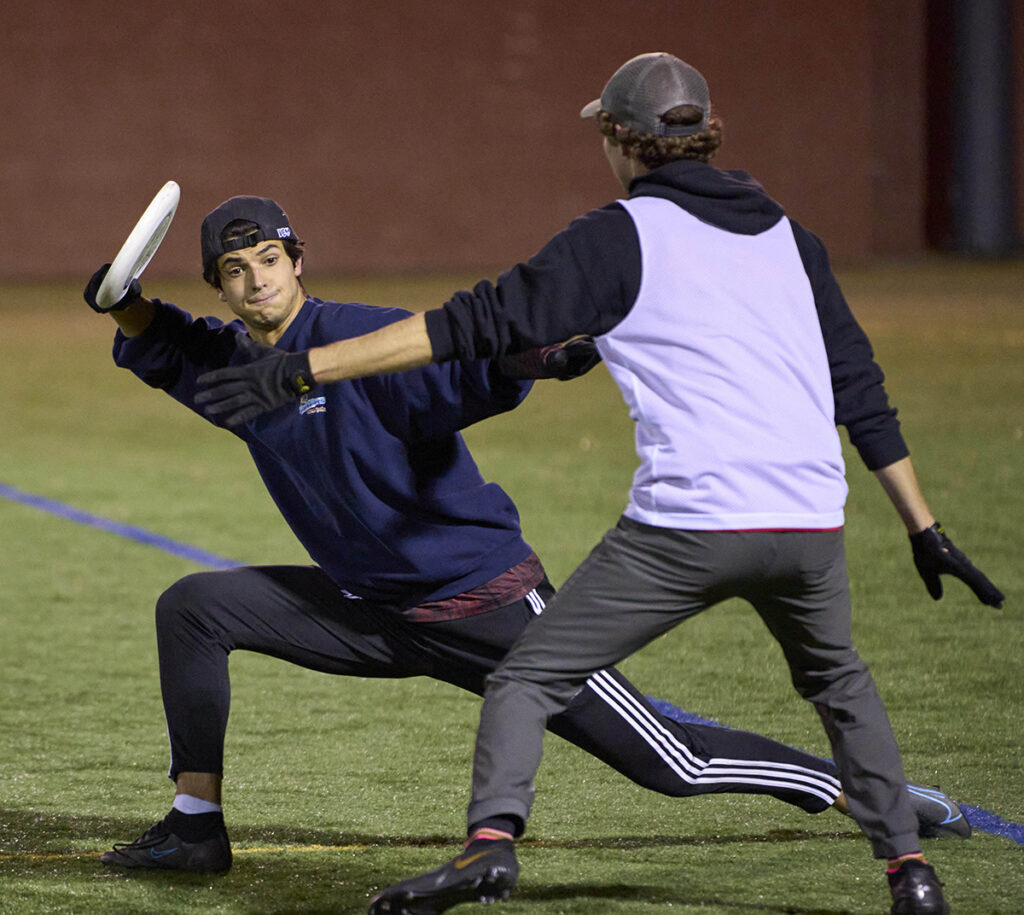
While some Contra recruits arrive at WashU having played in youth leagues or camps, many others are novices. Strod has found that athletes who have played soccer, basketball or football often excel at Ultimate. He uses the “buddy system” during practices to build both camaraderie and skills. Less experienced players are paired with veteran players who give pointers during drills. At the end of each drill, the team debriefs in a group huddle with arms around each other’s shoulders.
Players are just as competitive as they are supportive. During a recent scrimmage, a player aggressively blocked his teammate from getting off a clean pass by thrusting and waving his arms in the air. Immediately after the play, he offered a smile and a high-five.
“Practices are intense,” said Captain Ben Reimler, a senior in Arts & Sciences. “Sometimes there is yelling at each other, which can get a little heated. But that always ends immediately as practice ends. You may have been really frustrated with a guy, screaming at him, but as soon as practice is over, you forget about all that and you are back to being best friends.”
Reimler described the captain’s role as “all-encompassing,” ranging from organizing team dinners to giving feedback on the field to lending an ear when a teammate is having a tough week.
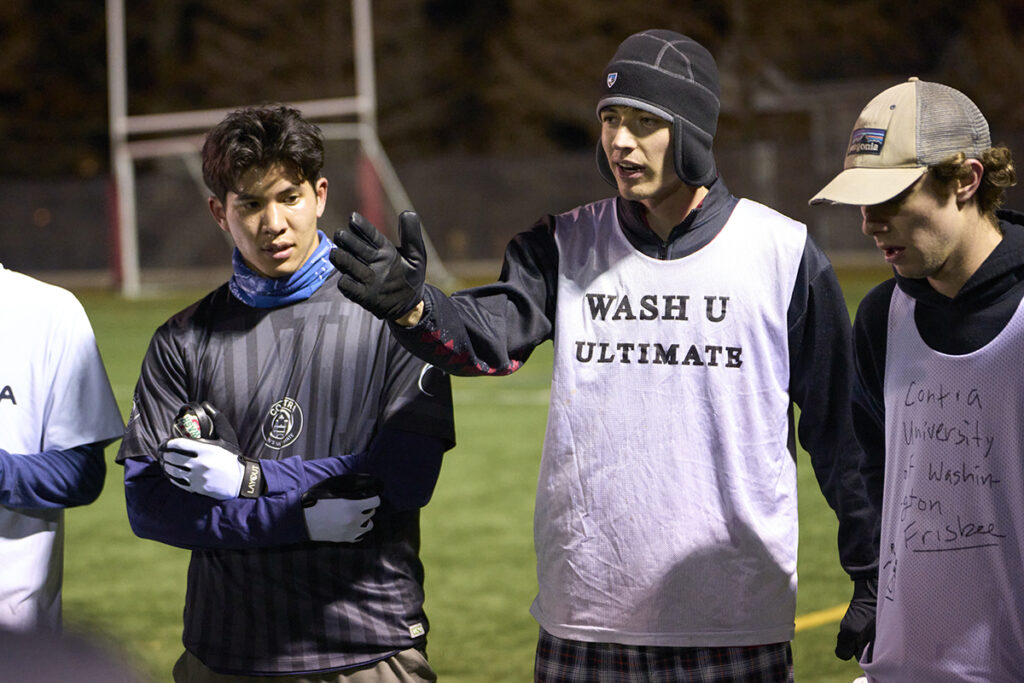
“We want to be there for teammates if they need anything and we try to serve as a person outside of Frisbee, especially for the first-years,” Reimler said.
Players said this sort of commitment to community has led to the team’s success. Contra currently boasts a 9-3 record and is preparing for tournaments in South Carolina and in Columbia, Mo.
“For the people that don’t come in playing, I really do think that it is the relationships that you build with the people on the team that makes you stay,” Strod said.
When asked how they are able to commit so much time and energy to the team, a chorus of responses summarized the bottom line — in a culture so built on support and community, it would be harder to not buy into the hard work and dedication required to succeed.
“Regardless of whether we are angry or happy, on the field we are doing what we love with the people that we love,” Weitzman said. “Even if I’ve had an awful day, there is no better place to have an awful day than right here. It’s a really beautiful thing that we have that camaraderie where I have never felt more pushed to be better.”
